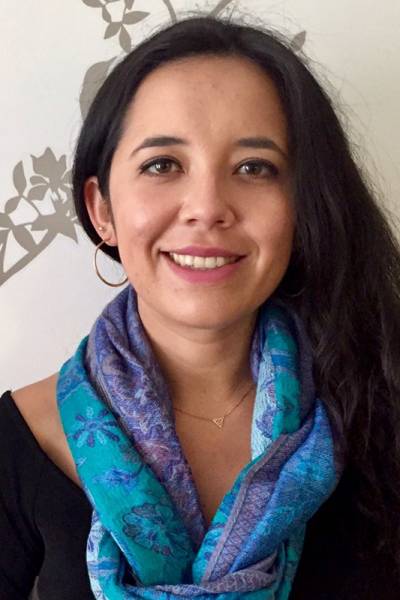Flor graduated from the Teaching of English to Speakers of Other Languages (TESOL) in-service MA in 2017 and is now a university lecturer in English Language Teaching in her home country of Chile.
Why did you choose to study the TESOL MA?
And what made you choose IOE?
I wanted to learn from top professors in a great university, so that’s how I found IOE on the QS World University Rankings. My TESOL MA combined courses relating to psycholinguistics, sociolinguistics, language teaching, and linguistics in such a way that I could have a better understanding of the language learning phenomenon and connect new insights with the learning context in my country.
Do you have any tips or helpful advice for incoming students?
In my case, I decided on the area of study I wanted to focus on specifically during my first weeks at UCL. Because in my country there were not many studies connected to how children were learning second languages, I approached every course with that perspective in mind. So, I went to every lecture thinking about how to connect the contents to the way children in English as a foreign language (EFL) contexts in Chile learn English.
“If you have a clear focus, you can study one subject in depth in one year, so the quality of your work can be robust. Keep your focus! That’s my advice."
How did you get to where you are now in your career?
I remember the day that Dr Paran stopped a class to tell us: ‘you are allowed to disagree. Just support your point of view’. He said that to me a couple of times while I was writing my dissertation, probably he wouldn’t believe the impact his words had on me. I think that before going to UCL I was really afraid to express my opinions, but now I believe that we are totally allowed to think on our own and that if we support our perspectives and express of views in a respectful way, everything is more than fine.
For this reason, I feel that the most valuable thing that the IOE gave me was the opportunity to develop my criticality and creativity. I think that the way I do everything now is more critical and creative, that’s why I can participate in conferences, do research and teach with a different style.
You're now a lecturer in English Language Teaching.
What do you enjoy most about your job?
My job is an opportunity to have an impact on the education of future teachers, and I feel honoured to have that possibility. If I help to train students to become great teachers for future generations, I think that’s a job to feel proud of.
How have you been able to apply the learning from your degree?
I have shared the findings of the dissertation I wrote for my TESOL MA in conferences and universities in my country. Now, I am working hard to get a revised version of my dissertation published in a journal.
I believe that I am trying to bring the UCL style to my classes and tutorials. I think the way I got feedback from my UCL professors is something I try to imitate today when teaching at university. At UCL, I was asked such good questions that my professors got me thinking for days. So now, I invite my students to think critically to analyse and create new things.
What did you enjoy most about your programme?
Many things! The rich experiences shared by each of my instructors; the opportunity to learn from classmates from all over the world with diverse perspectives; the incredible library; the insights I got from different types of assessment used in all the courses I took; and the opportunity to learn from my tutor during my dissertation period discussing and analysing possibilities for my research project. I think that my whole experience was brilliant!
Did you make use of any partnerships or programmes UCL has?
I joined TEAM UP, so I had the amazing opportunity to work closely together with three 12-year-old students in a school in Brixton every week. I helped them with their writing skills to sit for their GCSEs at the end of the school year.
I also participated in the UCL Global Citizenship Programme working with other students to develop a social start-up. This was a two-week programme to share ideas with UCL students from different fields, and gain new insights associated with social business development.
Since leaving, have any of the services for alumni been useful to you?
I have been in touch with some of my professors, and I have joined the UCL alumni network on LinkedIn. In this way, I read about new research and events.
Is there anything else you would like to say about your time at IOE?
I would love to say thank you to all of my professors. I know that although they were very busy, they always had the time to stop to talk to their students. I think that the TESOL MA staff are the heart of my experience at UCL and I would always be grateful for what each of them did with the 2016/2017 students - a numerous cohort.
Last updated 14 March 2023.
 Close
Close



